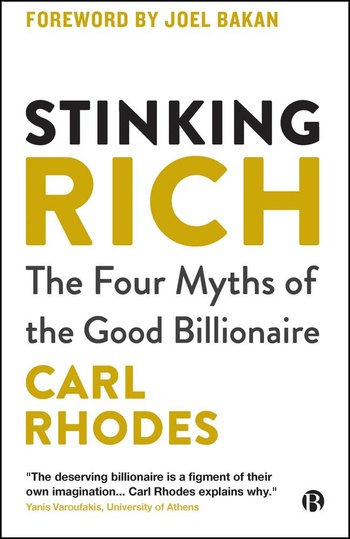On the day of the presidential inauguration in the US, we are reminded that 11 January, ten days ago, marked the day of Donald Trump’s sentencing for falsifying business records to cover up hush money payments.
As the procedures ended, presiding Judge Juan M. Merchan wished him well. “Godspeed in your second term in office”, he said, after issuing neither prison term nor fine for any of the 34 felony counts of which Trump was guilty.
Trump’s status as a convicted criminal did nothing to stand in the way of his being elected as the President of the United States. The Democrats pitched his race against Kamala Harris as prosecutor vs. felon in an attempt to upend his credibility. As a campaign tactic, it was a failure.
“Predators who abused women, fraudsters who ripped off consumers, cheaters who broke the rules for their own gain […] I know Donald Trump’s type”, declared Harris from the start of her campaign. When the votes were counted, the United States electorate proved themselves quite happy to vote for a person of this ‘type’ – the convicted criminal type – to be their president.
The world reacted in faux shock. How could it be that a ‘written-off felon returned to rule America’, asked London’s Financial Times. ‘Donald Trump is the first convicted felon to be president of the United States’, sighed the Australian Broadcasting Corporation.
Vigilante leadership
Progressive hand-wringing aside, Trump’s populist victory was not despite his criminal record; it was boosted by it. Why? Because he tapped into a deep-seated cultural myth of the vigilante.
An important part of Trump’s appeal lies in his positioning of himself as above the law and its bureaucratic machinery. The call to ‘make America great again’ draws on a mythical promise of a vigilante saviour for whom normal rules do not apply.
The mythical vigilante believes that individual action taken outside the functioning of the police and judiciary is the only way true justice can be achieved. In Trump’s case, this is the justice to the promise of American ‘greatness’.
The appeal of vigilantes is based on the premise that society is under a moral threat and that the authorities – the government, the law, the police – who are meant to protect all citizens have failed in their duty. Trump’s insistence that he is “totally innocent”, that he “did nothing wrong” and that his conviction was “an injustice of justice” all play to the idea of a man rising above a malfunctioning bureaucracy that is out to get him.
In Trump’s imagining of America, threats don’t just come from the legal system. America’s return to greatness is in peril on account of illegal immigrants causing crime waves, the democratic enemy within forcing America down the path to communism, the mainstream media spreading fake news to thwart his power, and woke universities brainwashing the impressionable youth. Trump to the rescue!
Billionaires to the rescue
Trump exploits the vigilante narrative to the letter. In the wake of this crisis, one person (generally a white man) emerges as a saviour who can achieve justice in a way that organised society has so wantonly failed to do. He does so by the strength of his moral certainty, steely determination and almost superhuman power. No pesky lawmakers or bureaucrats are going to stand in his way.
“I and I alone can fix it”, Trump proclaimed when he accepted the nomination as the Republican presidential candidate on 21 July 2016. Trump spoke with a convincing vigilante tone. Placing himself above other mortals on a pedestal of god-like sovereignty, his words appeared to paraphrase the biblical verse from Isaiah: ‘I am the Lord, and besides me, there is no saviour.’
In his 2016 campaign, Trump promised (yet ultimately failed) to ‘drain the swamp’. He followed the same playbook in 2024 when he enrolled his billionaire buddies Elon Musk and Vivek Ramaswamy to head up the newly mooted Department for Government Efficiency. He then recruited a whole lot more billionaires to help run the government, adding to the vigilante myth that the world’s saviours are the ultra-rich.
The new plutocracy
The myth of the vigilante billionaire that Trump trades on is as dangerous as it is implausible. A central dimension of his 2024 presidential campaign was his pledge to relieve the financial hardship faced by working-class Americans. Controlling inflation, cutting government expenditure and growing the economy would usher in his new era of greatness.
After decades of devastation brought on by growing economic inequality, America was promised that billionaires – those who embody the worst excesses of that inequality – would make everything great. Looking through the myth we find a bolstering of the power of the wealthy elite at the expense of democracy.
The myth of the vigilante billionaire not only justifies the social and political power of the economic elite; it moralises it. This vigilantism heralds a new global plutocracy where the world is ruled by the wealthy minority on its terms. Such is the leadership of the ultimate vigilante billionaire, Donald Trump. Meanwhile the rich continue to get richer in a world where the rules that govern the rest of us do not apply to them.
Carl Rhodes is Professor of Organization Studies and Dean of the Business School, University of Technology Sydney.
 Stinking Rich by Carl Rhodes is available on the Bristol University Press website. Order here for £19.99.
Stinking Rich by Carl Rhodes is available on the Bristol University Press website. Order here for £19.99.
Bristol University Press/Policy Press newsletter subscribers receive a 25% discount – sign up here.
Follow Transforming Society so we can let you know when new articles publish.
The views and opinions expressed on this blog site are solely those of the original blog post authors and other contributors. These views and opinions do not necessarily represent those of the Policy Press and/or any/all contributors to this site.
Image credit: Abhinav Bhardwaj via Unsplash


